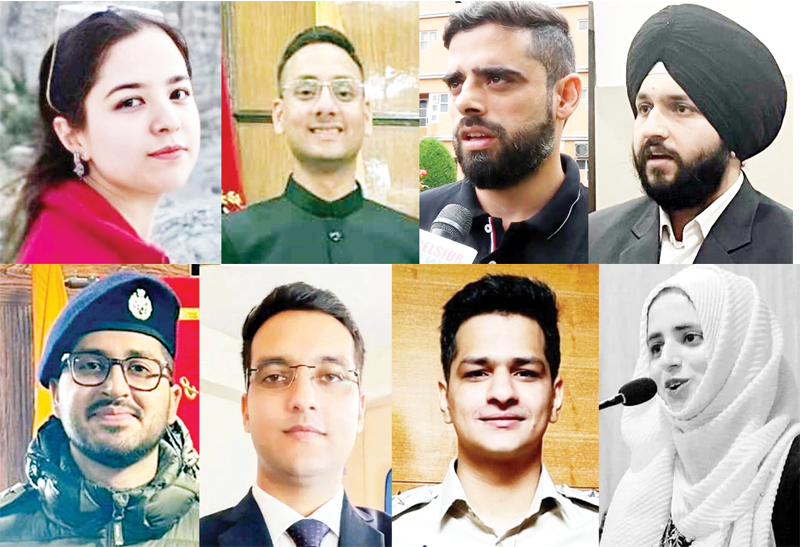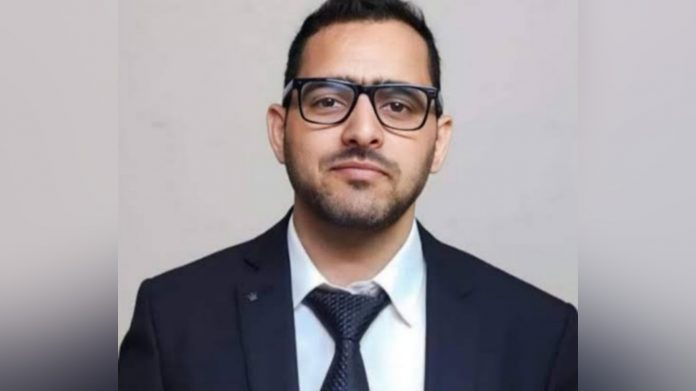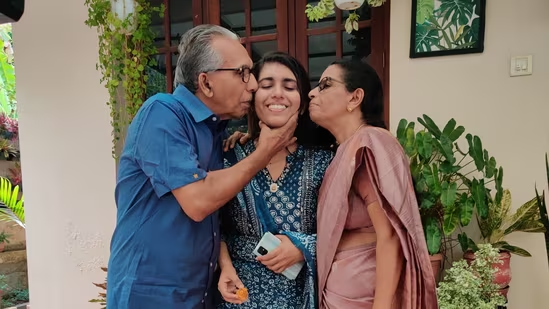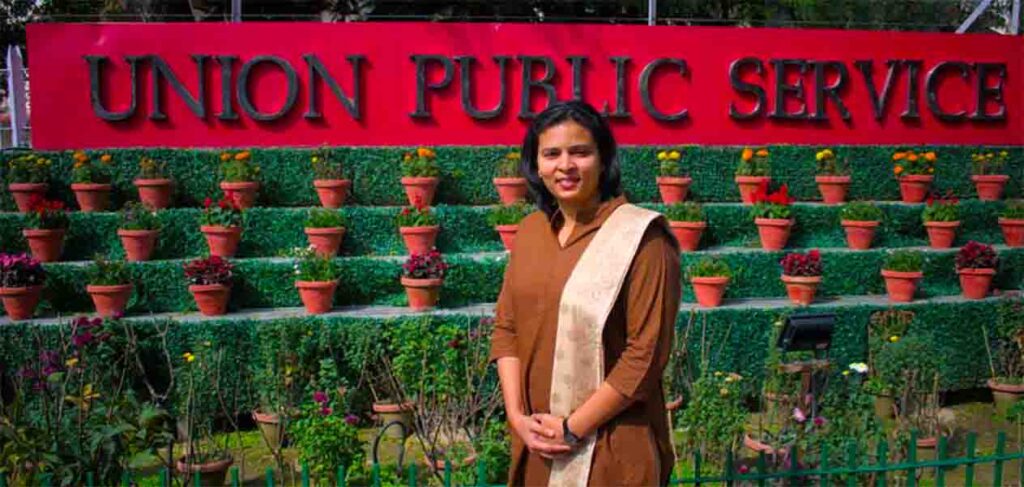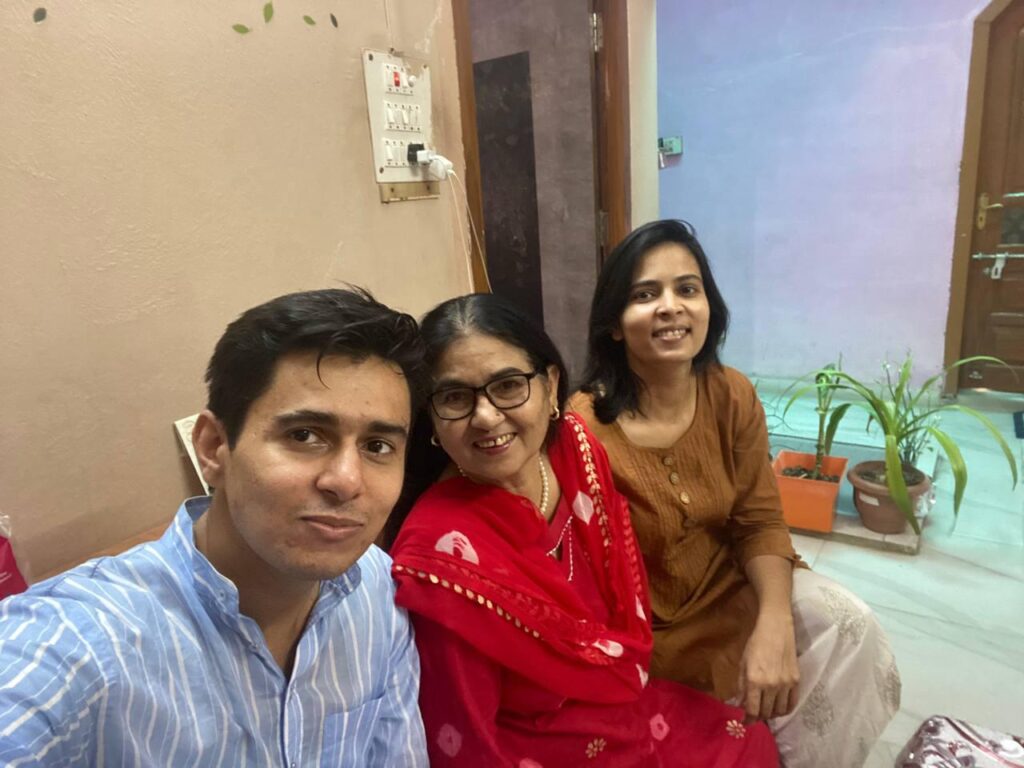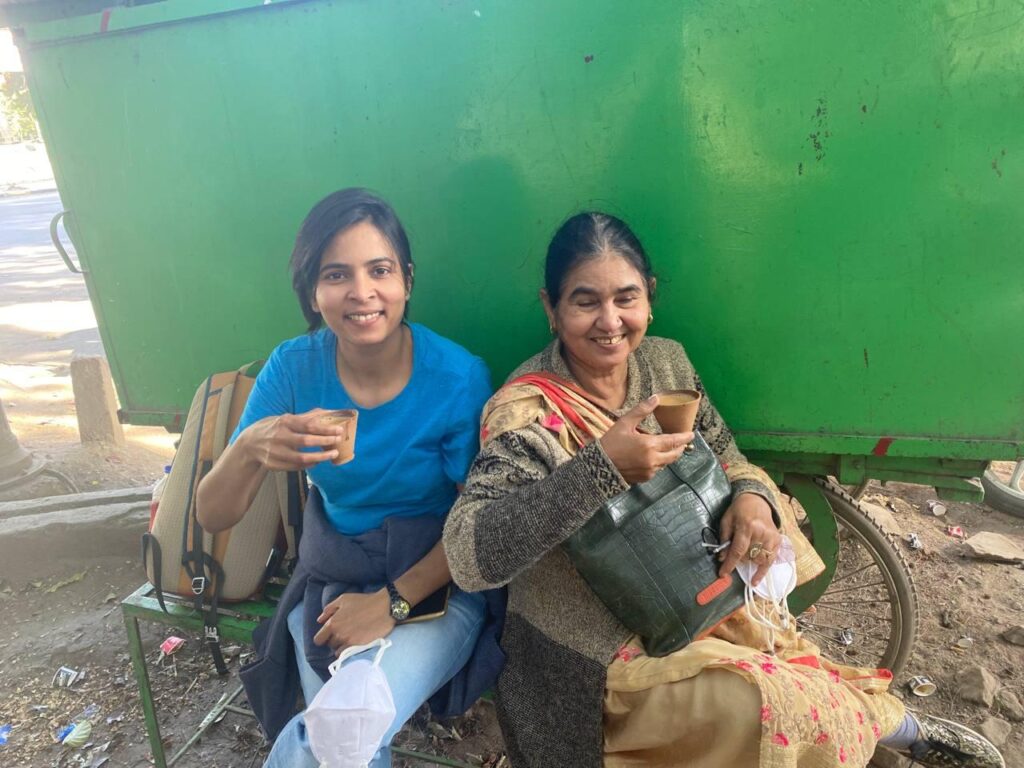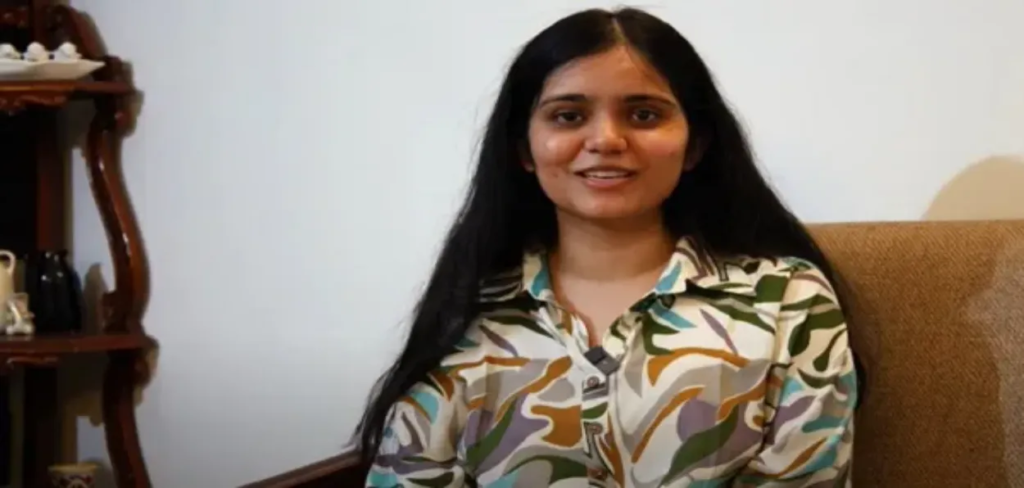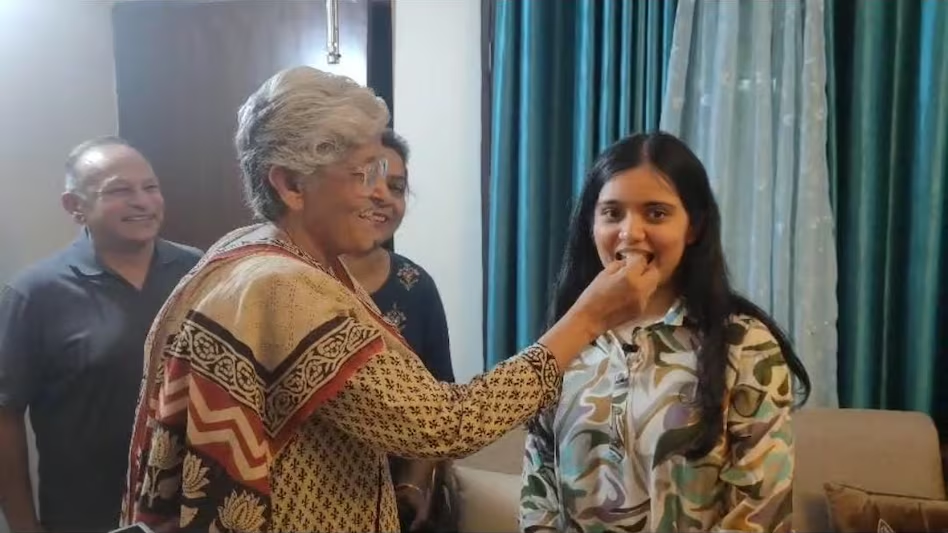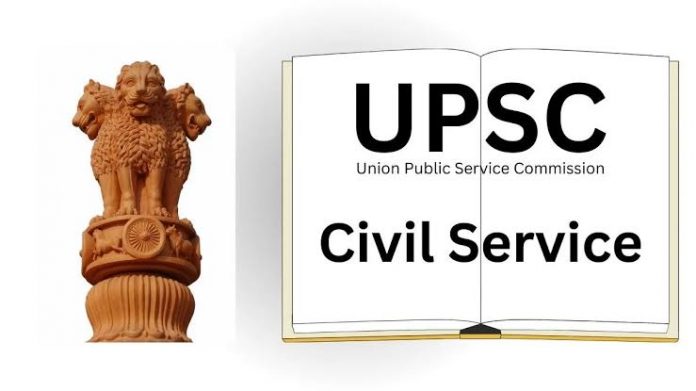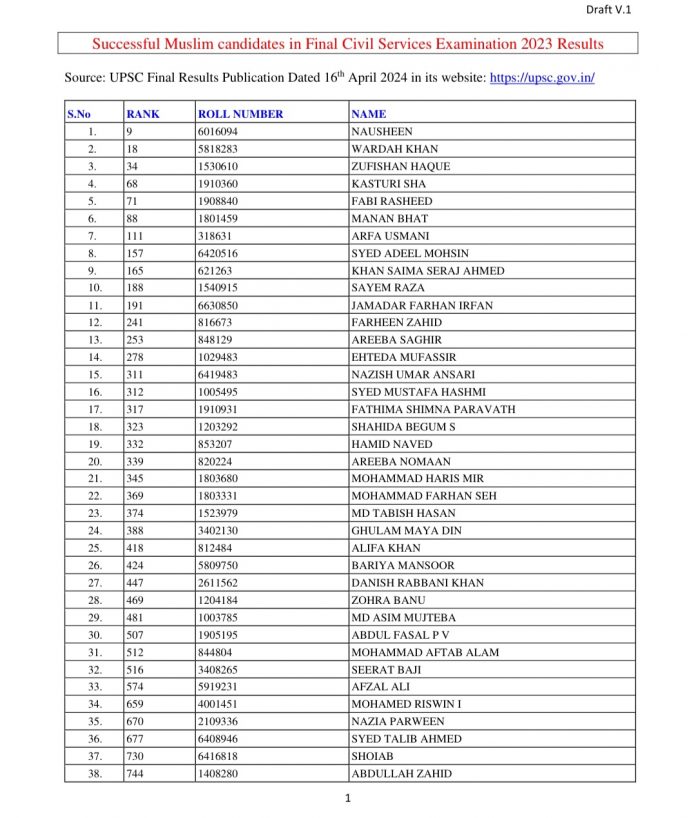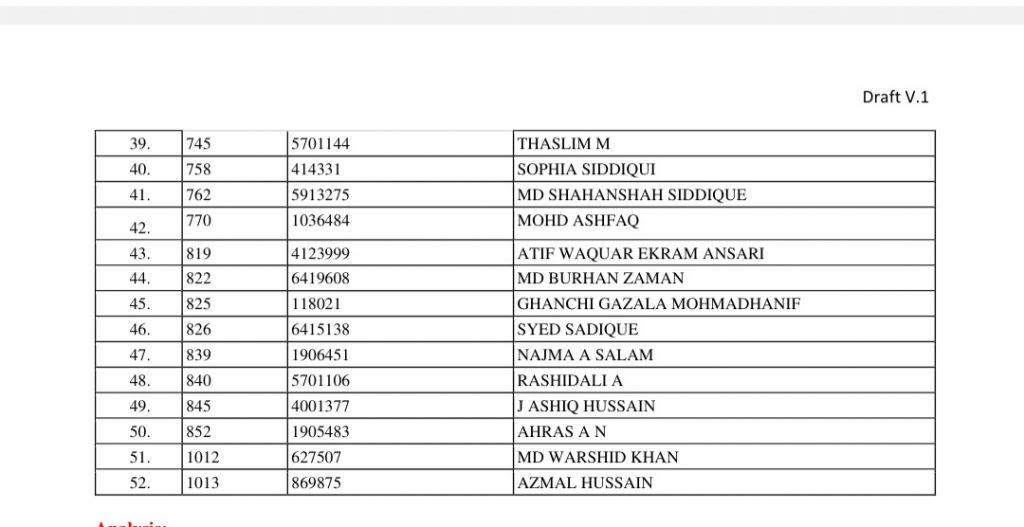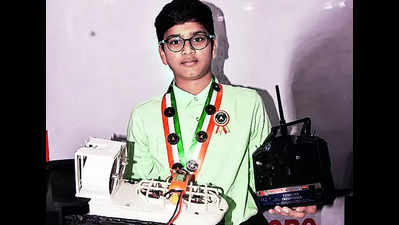Patna, BIHAR :
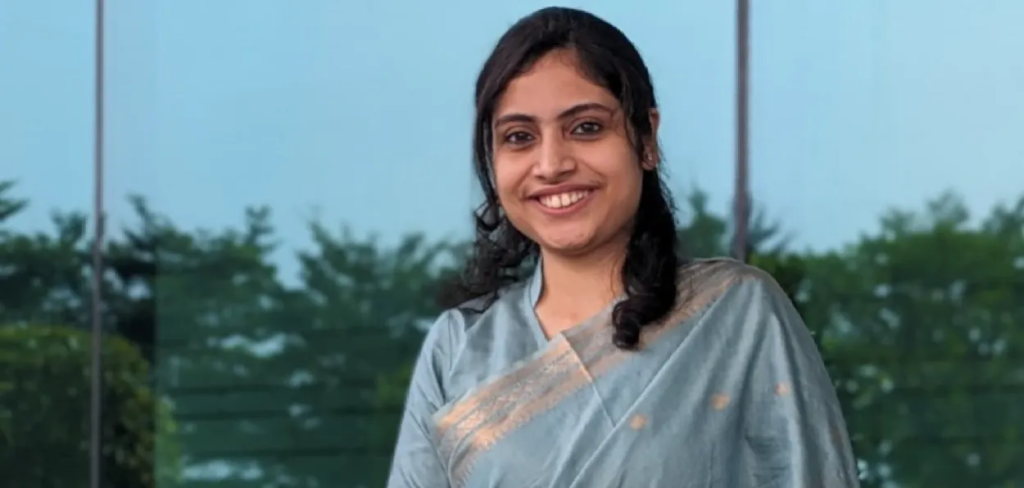
Zufshan Haq, AIR 34
Zufshan Haq of Patna, who secured 34th rank in UPSC’s combined civil service examination for the year 2023, is the epitome of never say-die spirit. She was a trainee Indian Revenue Service (IRS) officer when she took the UPSC examination and secured a higher rank to be eligible to get into the Indian Administrative Services (IAS).
Zufshan spoke with Awaz-The-Voice about his journey. She was born and raised in Gangtok, Sikkim, where her father Mahfouzul Haq was the principal of a government school.
“I was also born in Sikkim; went to a school there and completed my 10th and 12th exams from CBSC Board and was the State topper.”
“I stayed in Sikkim till my graduation in B. Tech.” She topped the B Tech examinations and later joined M Tech at IIT Patna where she bagged a gold medal.
“Meanwhile, I got a scholarship that allowed me to accomplish research in Germany and I spent almost a month in Germany.”
Soon on return from Germany, she said she plunged into preparing for civil services. “This was my fourth attempt. Last time, my rank was 193 and I was selected for the Indian Revenue Service. Right now I am undergoing training as an IRS officer.”
Zufshan Haq says it is not just the rank but the journey to reach there that gives one a lot of joy. “Those who have seen me closely also felt that after working hard for so many days, I finally achieved the target and now I am very excited that tomorrow I will get an opportunity to become an IAS officer. I will be able to make an effective change.”
Zufshan says it’s not fair to give credit for her success to one person including her. “It is not right to give credit to one person because whenever there is such success, everyone plays an important role somewhere. Be it family members, parents, sisters, or school teachers and then teachers of higher educational institutions and friends who encourage civil services at some level or the other. That is, in this kind of success, there is someone on every side who helps you in one way or another.” Zufshan said she was grateful to all those people who helped her in this journey.
Zufshan Haq says that she also got a lot of help from Hajj Bhawan. Firstly it provided him with accommodation. She said that the environment of Haj Bhavan is quite good and the teachers teaching there are also quite good. The teachers who used to teach at Haj Bhawan Coaching helped me a lot in preparing for the UPSC Mains exam. “Undoubtedly, Hajj Bhawan also played a very important role in my success. I had a lot of facilities in Haj Bhawan and I completed my UPSC Mains preparation while staying there. “
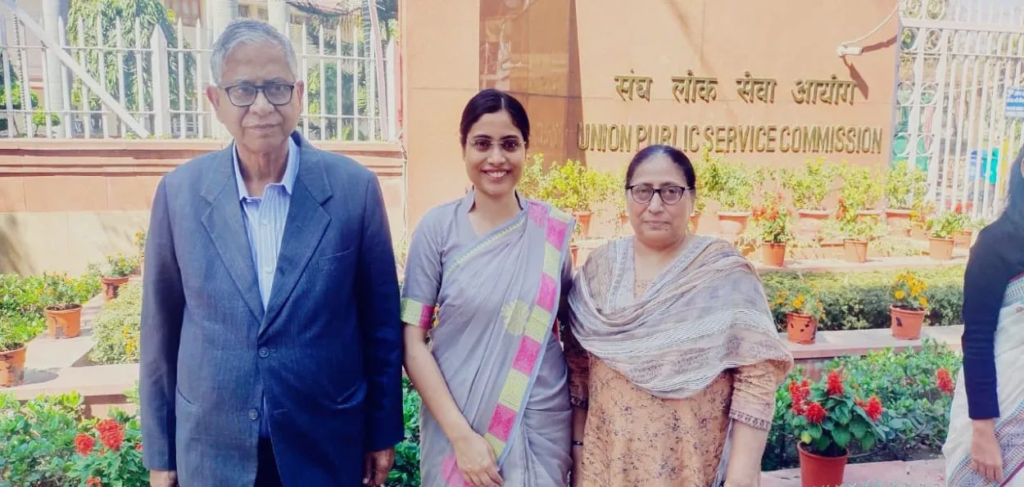
Zufshan Haq with her proud parents posing for a picture outside the UPSC office in New Delhi
Zufshan Haq says her only advice to all the students is to work hard and in the right direction then success will surely come. She said that after spending some time in this equation, one finds out what she wants to study. “Keep an eye on the syllabus and plan your studies meticulously. A competitive exam is like any other exam. She said that clearing UPSC is a difficult phase but not so difficult that success cannot be achieved. If you stick with it continuously for one or two years then you will crack this exam.”
She said not only the candidate but even his family members should be ready to support her. “Family’s support and encouragement also play an important role.”
Zufshan Haq started her preparation in 2019. “From my school days, I aimed to prepare for civil services. But after doing M.Tech I started preparing for it regularly. In 2020 also I took the UPSC exam but failed. Next year, I was selected in the Mains and appeared for the interview. In 2022 I finally achieved this goal my rank was 193 in the UPSC exam and got selected for IRS. Then I took 4th attempt and got rank 34 in the UPSC exam in 2023 and finally got selected for IAS.”
How many hours should one study for UPSC?
Zufshan Haq says it is difficult to set a time limit.”You can say if I study for 10 hours I will surely clear my UPSC exams. Every student has different strategies, maybe What I understand in an hour, and someone else can understand in 15 minutes. So saying I studied for 10 hours while she studied for seven hours doesn’t matter. You have to make your target like I have to complete four chapters of this subject so if you think you can complete it in two days then see if the target set is achievable. Or not, if once a plan is made, in any case, it has to be completed in two days, then four days is not the same thing.”
She feels any student who is honest in her studies will understand her strengths and weaknesses. “you understand that you build your routine accordingly. So every student should look at this exam at her own pace and work hard accordingly.”
Zufshan Haq’s message to all those preparing for civil services is that they should first check the UPSC syllabus. All that information is available on the UPSC website. Only after this does one get clarity on her strategy to study.
“Most students start their preparation without seeing the syllabus which I think is not good. Also one needs to see the previous years’ question papers and figure out the pattern of questions asked. Also, don’t run after so many sources thinking that if I read 10 different books on the same topic I will be successful. The time is very less, it is more important for you to revise. If you read the same thing four times then you will be able to write it in the main exams.”
Zufshan’s family moved back to Patna after his father’s retirement. I have a sister who is a dentist; she lives in Dhanbad with her doctor husband. She has another sister who is studying and Zufshan is the youngest of the siblings. “The environment at home was oriented towards education and learning and it must have affected us. That’s why we worked hard and managed to reach here,” says.
source: http://www.awazthevoice.in / Awaz, The Voice / Home> Story / by Mehful Alam, Patna / April 21st, 2024
